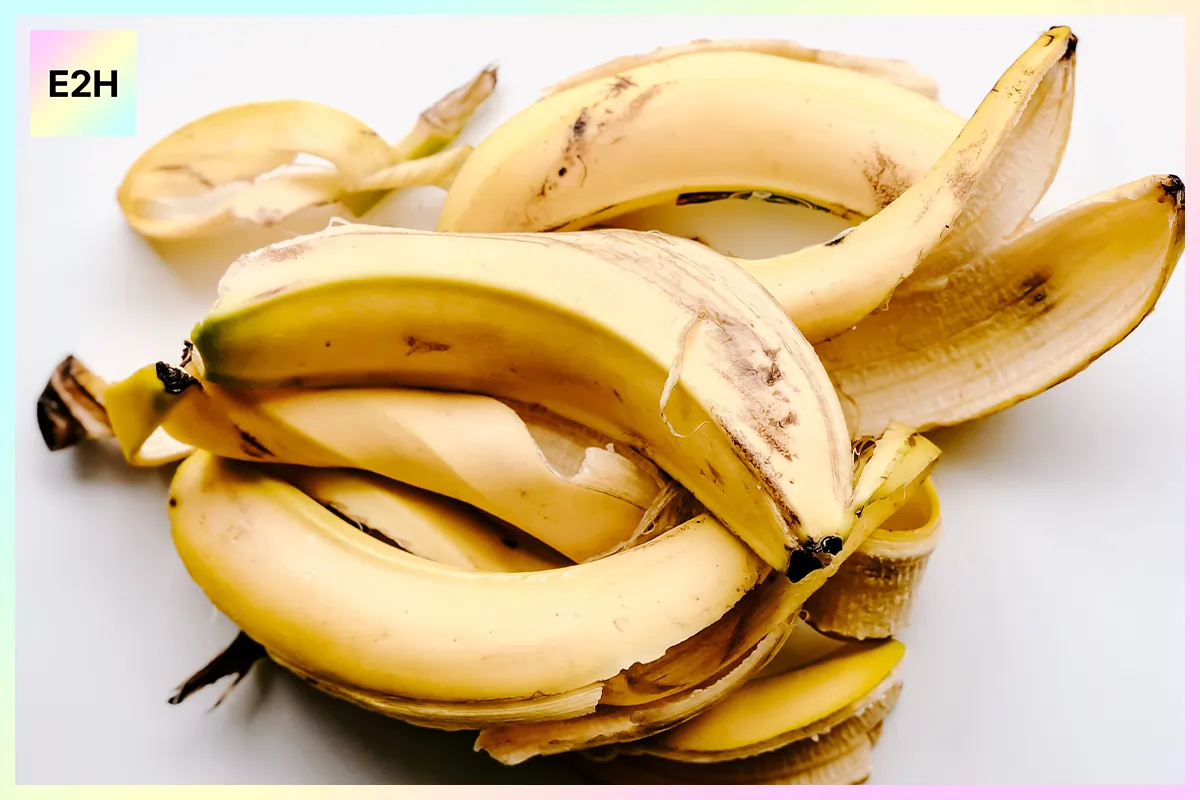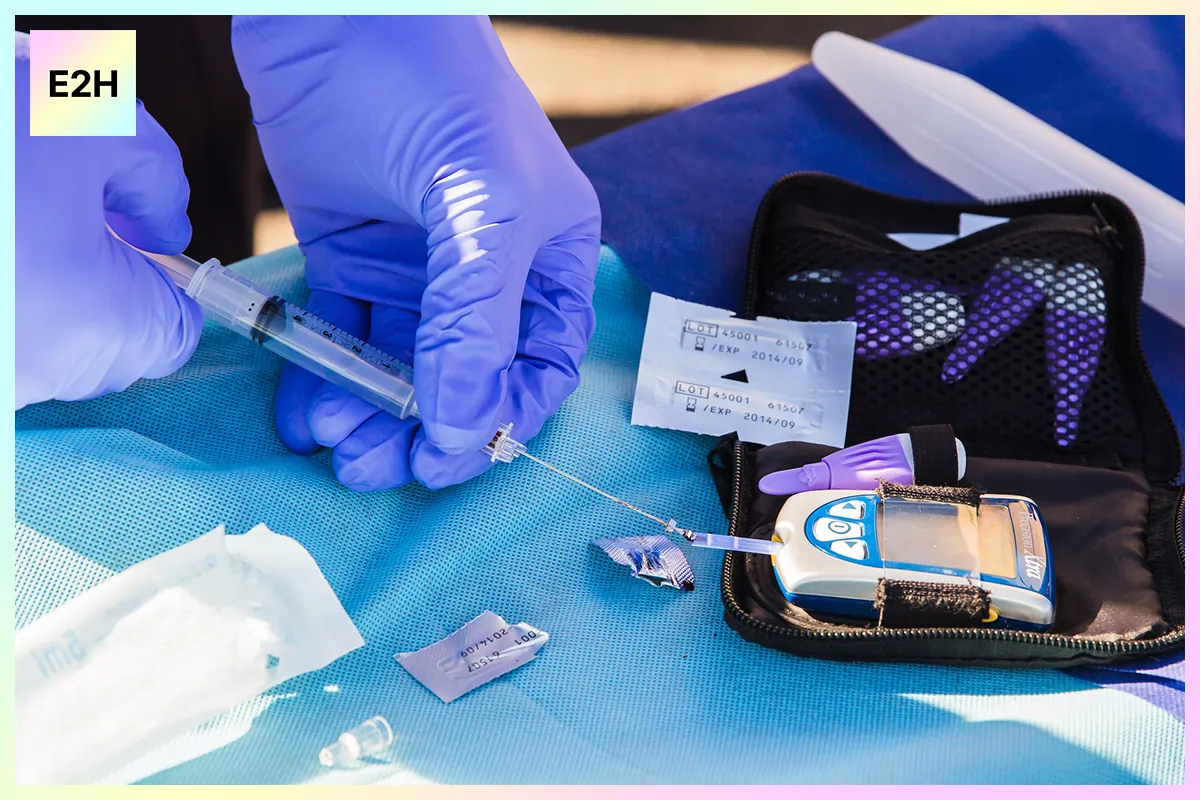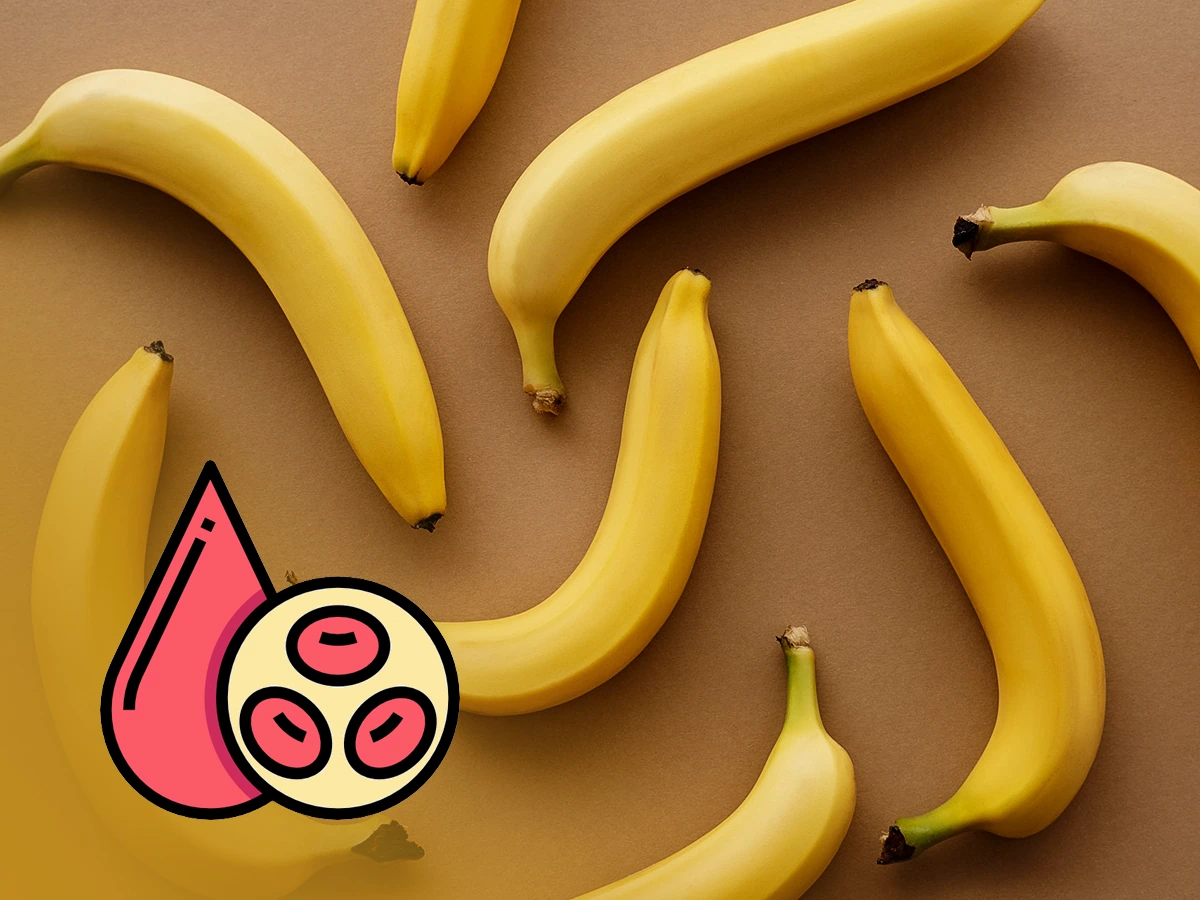In the diet of people with diabetes, foods that do not cause fluctuations in blood sugar levels should be used.
Blood sugar control plays a crucial role in the management of diabetes.
Good blood sugar management can help prevent or slow the progression of some diabetes complications,
so avoiding foods that raise blood sugar is essential.
People with diabetes usually think they should not eat fruit because it contains fructose, a natural sugar in fruit. But, of course, this thinking needs to be corrected.
In this article, we will talk about banana fruit and check whether bananas can be harmful to diabetics or whether they can safely consume this fruit, so stay with EasyToHealth 🦋.
Nutritional Value of Bananas
Each banana is only about 105 calories and consists almost entirely of water and carbohydrates.
Carbohydrates in green and unripe bananas are mainly composed of starch,
but as the banana ripens, the starch turns into sugar (glucose, fructose, and sucrose).
Generally, bananas are very low in protein and fat, high in sodium and cholesterol, and contain nutrients such as vitamin B6, potassium, and manganese.
According to the analysis published at Harvard University, a banana has a glycemic load of 11. Glycemic load shows the effect of food on blood sugar.
Banana fruit, especially green or unripe bananas, contains resistant starch.
Resistant starches are long chains of glucose that are “resistant” to digestion in the upper part of your digestive tract.
This means they act like fiber and do not raise blood sugar levels.
They may also help feed the good bacteria in your gut,
which is linked to improved metabolic health and better blood sugar management.
A 2018 study on blood sugar management in people with prediabetes found some exciting results.
In 12 weeks, those who received the resistant starch supplement had better blood sugar management than those who did not consume the supplement.

The Effect of Bananas on Blood Sugar
Carbohydrates raise your blood sugar levels more than other nutrients, which can significantly impact your blood sugar management.
Bananas also contain carbohydrates that increase blood sugar.
A medium banana contains about 15 grams of sugar.
On the other hand, bananas also contain fiber, which may reduce the increase in blood sugar;
a medium banana contains 3 grams of fiber.
Fiber is essential for people with diabetes because it can help slow the digestion and absorption of carbohydrates.
Scientific research was conducted on mice for the effect of bananas on their sugar level;
The research results showed that consuming bananas can reduce the blood sugar level of mice suffering from hyperglycemia.
Can Diabetics Eat Bananas?
The American Diabetes Association recommends that fruits that should be included in the diet of people with diabetes can be used as a meal.
This is because eating fruits and vegetables is associated with better health and a reduced risk of diseases such as heart disease and some cancers.
People who have diabetes are at a higher risk of developing these diseases,
so consuming fruits and vegetables is essential for them.
So, in general, people with diabetes can consume bananas, but they should pay attention to the following points:
- Choose smaller bananas to reduce the amount of sugar you eat in one serving.
- Choose a banana that is not too ripe and yellow.
- Spread your daily fruit intake to help minimize glycemic load and stabilize blood sugar levels.
- Eat bananas with other foods to help reduce and control sugar digestion and absorption.

Conclusion
As a result, while bananas contain carbohydrates that can raise blood sugar levels,
they also contain fiber and resistant starch that can help slow down the digestion and absorption of these carbohydrates.
This makes bananas a good option for people with diabetes who should include fruits and vegetables in their diet for better health and reduced risk of diseases such as heart disease and cancer.
However, it is crucial for people with diabetes to choose smaller, less ripe bananas, spread their fruit intake throughout the day, and eat bananas with other meals to help control sugar digestion and absorption.
By following these guidelines, people with diabetes can enjoy the many nutritional benefits of bananas without worrying about their effects on blood sugar levels.

Leave a Reply